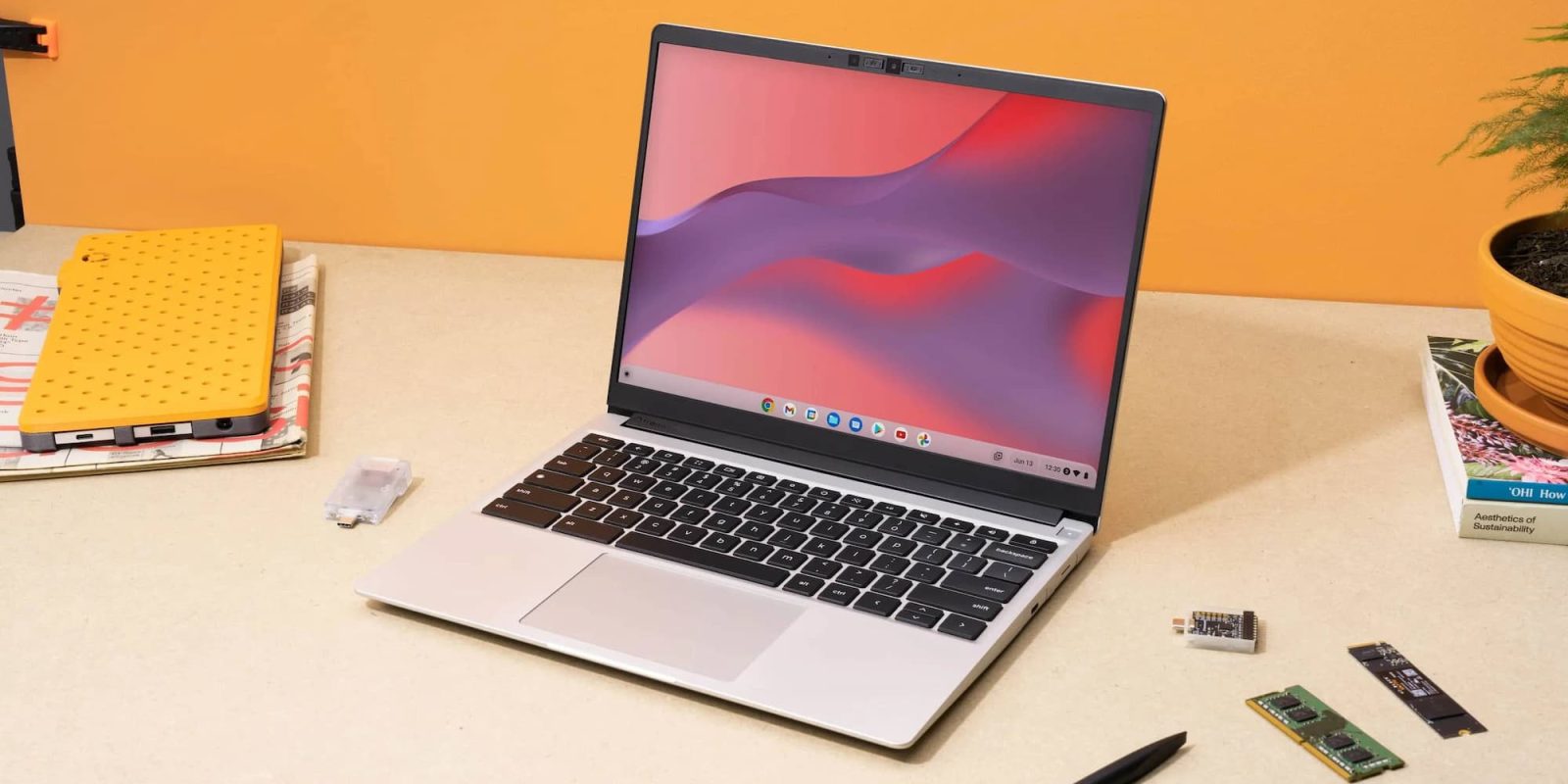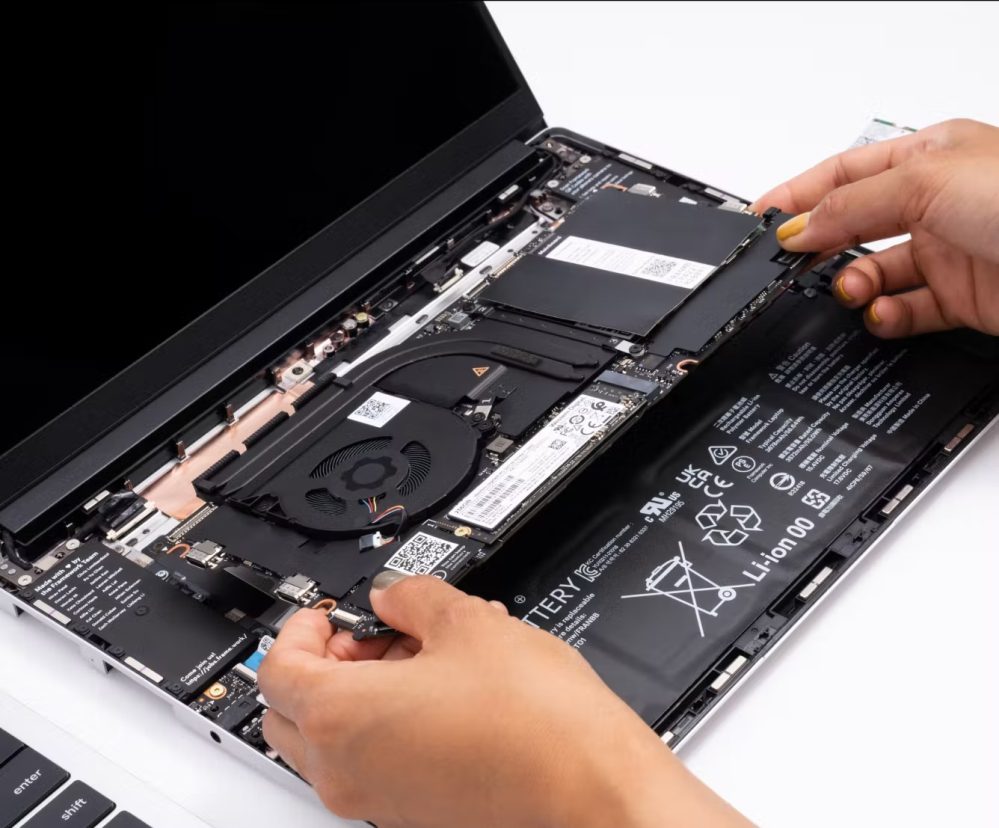
This week the Framework Chromebook was announced as the first modular ChromeOS laptop. The ideas behind Framework are ambitious, to say the least, but how will this Chromebook version differ from the Windows option, and what about modules? In a Q&A on Hacker News, Framework’s founder has answered some of the community’s biggest questions around this new device.
Why build a Chromebook in the first place?
Unsurprisingly, a major question around the Framework Chromebook is why the product exists in the first place. Framework is a premium product, and Chromebooks usually aren’t. Plus, the enthusiast community behind Framework seems like an ideal market for an AMD-powered Windows machine, or a Linux laptop. So why go for a Chromebook instead?
Framework founder Nirav Patel explains:
It’s a valid question. Since there are few to no current products in this segment, we really are testing it. We get to do tests like this much more efficiently than most because we can leverage our existing modular product and build just new modules needed for it.
But beyond just that this seems to be a low-risk endeavor, Patel explains that there is one major advantage to a ChromeOS version of the Framework over one that comes pre-loaded with a Linux distro such as Ubuntu.
In practice [ChromeOS provides] full, stable hardware compatibility and battery life. The Linux experience on the Framework Laptop on recent distros (e.g. Ubuntu 22.04.1) is solid, but battery life will still generally be better running Ubuntu on top of ChromeOS.
Can you install other operating systems on the Framework Chromebook?
Officially, no.
Like all Chromebooks, the bootloader on the Framework is locked down to ChromeOS. You can use Developer Mode to boot into Linux distros, but it takes quite a bit of tinkering. It’s not as simple as just dual-booting into a different operating system on a whim.
The bootloader situation is the same as other Chromebooks. It is totally possible to get into and stay in developer mode to do what you would like with the system. In practice, doing things outside of ChromeOS depends on how robust community-driven development ends up around that.
But, that’s not where the story ends.
Unofficially, you can install another OS on this machine.
According to Patel, the Framework Chromebook can swap out its main board with one from a Windows version of the machine. This might require a little more work, though, as you’d technically also need to swap out the keyboard and potentially the webcam to get the full experience.
Technically, every module is compatible, but some will turn it into not a Chromebook. For example, you can drop a regular Framework Laptop Mainboard or Input Cover into it.
It’d take a fair bit of work to swap out the OS, but apparently, it’s very possible. Swapping out the board is a process that should take just a few minutes, thanks to the modular and easy-to-repair design of the Framework Laptop. Of course, that would come at a hefty cost – a mainboard from Framework costs around $450 or so.

Framework also explicitly confirms this is officially supported on its website.
Since the Framework Laptop Chromebook Edition chassis is compatible with Framework Laptop Mainboards, there is always an upgrade path available if you want to move to a different OS or processor in the future.
Do all Framework modules work on the Chromebook Edition?
On the note of replacing parts, what about Framework’s modules? The Chromebook Edition technically supports all modules physically, but some aren’t supported by the software. The webcam module, for example, requires a special version due to the firmware updates through ChromeOS, and the fingerprint module isn’t supported at all.
We have compatibility filters in the Marketplace to indicate what is compatible. Technically, every module is compatible…
Keeping it as a Chromebook with ChromeOS, there are specific firmwares required for the Touchpad and Webcam that required us to create variants. The Fingerprint Module we have is also not compatible with ChromeOS.
Framework Chromebook has better battery life
One other tidbit about the Chromebook version of the Framework Laptop is that, by nature of ChromeOS, it will have better battery life than the Windows versions. However, what’s great to see is that the optimization made on this model will also be improving power consumption on the Windows models through a forthcoming firmware update.
Google has fairly strict requirements around power consumption. They have a standard test for 10 hours of active use through common use cases, which we were able to meet. For standby, the requirement is around 14 days. I have to double check where we are on the current software and firmware, but we are close to that number.
We actually did learn some things about the Intel re-timers through this product development that let us come up with ways to improve the behavior on the regular 12th Gen Framework Laptops. We are currently developing a firmware update for that that will improve both active and standby battery life.
More on Chromebooks:
- Google and Framework making an upgradable Chromebook, starting at $999
- Review: HP Elite Dragonfly Chromebook is Google’s Pixelbook reborn
- ‘Intel Processor’ name replacing Pentium and Celeron brands, expect in 2023 Chromebooks
FTC: We use income earning auto affiliate links. More.



Comments